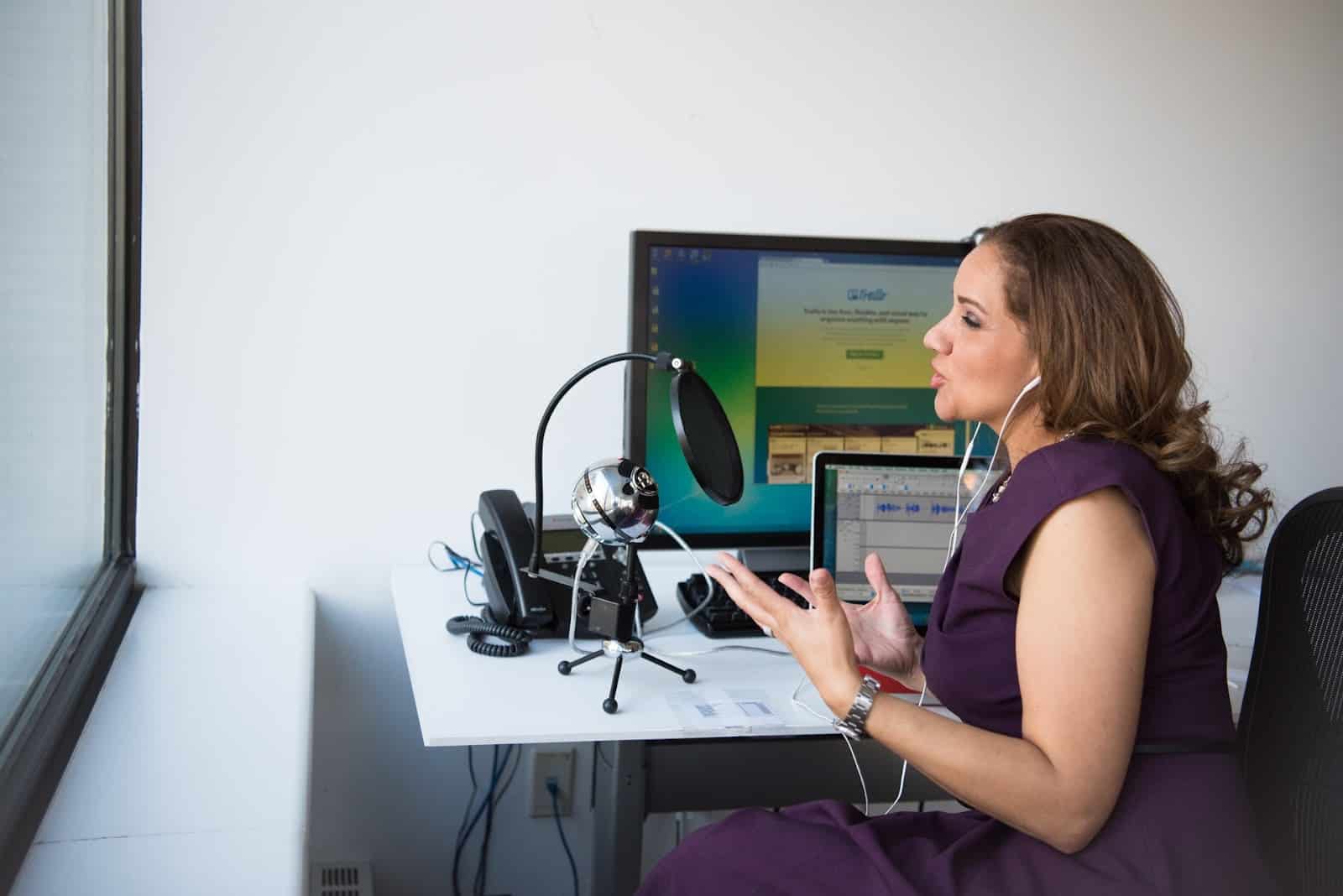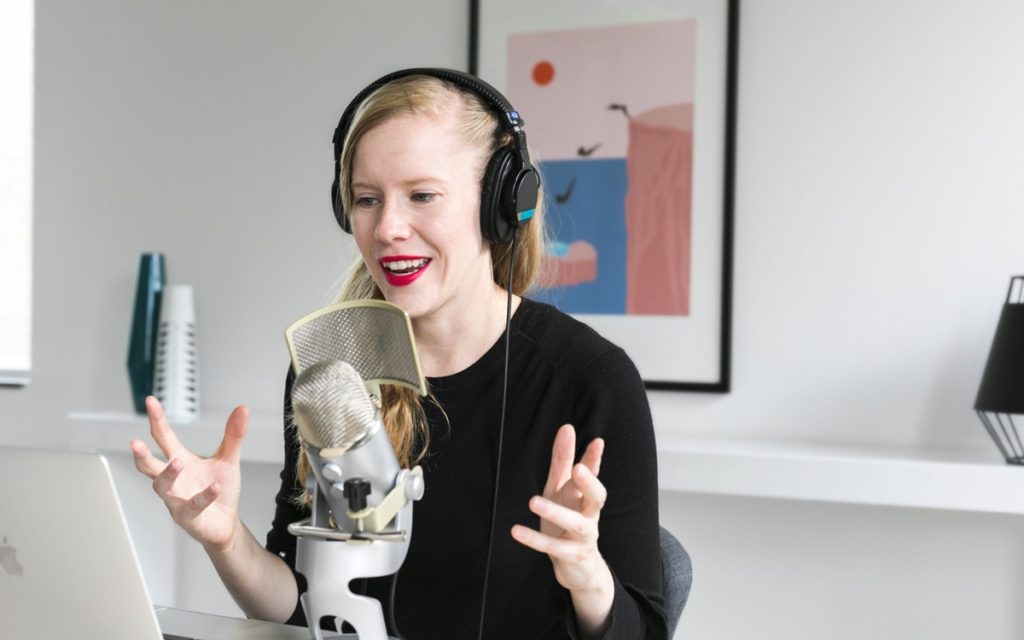The digital age has ushered in a plethora of new mediums to reach audiences around the globe. One such popular medium that has gained significant traction over the last decade is podcasting. But is it worth it for a non-profit organization to venture into podcasting? This guide explores the possibilities, weighs the pros and cons, and provides a roadmap for setting up a successful podcast for non-profit.
Non-profit organizations thrive on effective communication. The ability to narrate their story, mission, and the impact they make can greatly affect the overall success of their outreach efforts. Podcasting, with its inherent personal touch and storytelling prowess, can prove to be an influential tool for non-profits. But before you grab your microphone and hit record, let’s explore in detail whether podcasting is the right fit for your non-profit.
The Benefits of Starting a Podcast
In the digital age, one of the key communication trends is podcasting. This powerful, versatile medium has permeated all sectors, including the non-profit sphere. As a non-profit considering a podcast, you might wonder about the potential benefits this platform could bring. Let’s delve into the specifics, examining how podcasting can enhance your reach, build a community around your cause, and foster personal connections with your audience.

Enhanced Reach and Engagement
Podcasts are a global phenomenon. Listeners tune in from every corner of the world, providing an opportunity for your non-profit organization to disseminate its message far and wide. Your local cause can transform into a global one, inspiring action and change on an unprecedented scale.
Unlike traditional forms of communication, podcasts do not confine you to a specific geographical area. They are accessible to anyone with a smartphone or a computer and an internet connection, irrespective of their location. This means that your organization can reach and influence an international audience, thereby dramatically increasing awareness and support for your cause.
Podcasts also boast impressive engagement statistics. A report by Edison Research in 2021 indicated that podcast listeners are generally highly engaged, with the majority of listeners consuming more than half or all of the podcast episodes they start. This high level of engagement provides an excellent platform for non-profits to educate their audience about their cause and inspire them to take action.
Building a Community
One of the most compelling aspects of podcasting is its ability to foster communities. A podcast can serve as a virtual gathering place, bringing together like-minded individuals who share a common passion for your cause. By regularly providing valuable content, your organization can cultivate a dedicated listener base that gradually develops into a vibrant, interactive community.
This community can serve as a supportive network for your non-profit. Active listeners can become advocates for your cause, sharing your podcast, and promoting your organization within their circles. They can contribute ideas, engage in discussions, volunteer their time, or even make donations. This sense of community can be a powerful force in driving the mission of your non-profit organization forward.
Personal Connection
Podcasting, at its heart, is a personal medium. Unlike written content, which can sometimes feel impersonal, a podcast enables the listeners to hear the human voice behind your organization. They hear the passion in your voice, the authenticity in your narrative, and the dedication in your mission.
This personal connection can be incredibly influential in motivating support for your cause. When listeners feel personally connected to your organization, they are more likely to engage with your content, advocate for your cause, and provide financial support.
Moreover, through podcasts, you can share stories from the field, interview the people you serve, and offer behind-the-scenes insights into your operations. These narratives can bring your work to life, enabling listeners to understand the impact of their support. This human connection is what sets podcasting apart and makes it a potentially powerful tool for non-profits.
To sum up, podcasting can significantly benefit your non-profit organization by enhancing your global reach, building a strong community of supporters, and fostering a personal connection with your audience. With these advantages, it might be worth exploring how a podcast could further your organization’s mission and goals.
The Disadvantages of Starting a Podcast – A Closer Look
As exciting and beneficial as podcasting may be for your non-profit, it’s crucial to acknowledge the potential drawbacks that come with starting a podcast. While it can open doors to global audiences, foster communities, and establish deep connections, it also presents challenges, including the necessity for substantial time and resource investment, slow audience growth, and the technical know-how required. Let’s delve deeper into these aspects.

Time and Resource Intensive
Podcasting is an endeavor that requires substantial investment in both time and resources. From the initial planning phase through to recording, editing, and promotion, each podcast episode requires meticulous attention and dedication.
During the planning stage, time needs to be allocated to mapping out episode topics, drafting scripts, and organizing recording sessions. Recording itself is not a simple push-of-a-button task – it often requires multiple takes to ensure the message is clearly and effectively delivered.
Post-recording, the editing phase kicks in. This can be quite labor-intensive, involving tasks like cleaning up audio, cutting out mistakes, adding music or sound effects, and compressing the file for upload.
Promoting the podcast is yet another time-consuming task. To get your podcast heard, you need to invest time in marketing it through various channels, including social media, newsletters, and your organization’s website.
If your non-profit is already operating with limited resources, these demands could stretch your capacity.
Slow Audience Growth
It’s essential to remember that podcasts often experience slow audience growth. Building a solid and consistent listener base takes time and patience – your podcast may not gain immediate traction upon launch.
Although some podcasts may hit the jackpot and gain a large audience quickly, most experience a more gradual growth trajectory. This process can be frustrating, and it’s crucial to be prepared for this reality. It takes persistency, consistency, and patience to keep delivering high-quality content that will slowly but surely attract and retain listeners.
Technical Challenges
Podcasting comes with its own set of technical challenges. For starters, you need the right equipment to record your podcast. This includes a good-quality microphone for clear audio, headphones for monitoring sound, and potentially soundproofing measures for your recording space.
Then there’s the task of choosing the right podcast hosting platform – one that fits your budget, offers reliable service, and provides adequate storage and bandwidth. You will also need to learn how to use podcast recording and editing software, which can have a steep learning curve for beginners.
Dealing with these technical aspects can be daunting for non-profits, especially those with limited resources or lacking in-house technical expertise.
Blog vs Podcast: Which is Better?
In the realm of content marketing, two mediums often find themselves compared – blogging and podcasting. Both are powerful tools for communication and outreach, each offering unique benefits. But how do they stack up against each other? Which one should your non-profit organization choose to invest its time and resources in? Let’s explore this further.

Blogs: The Traditional King of Content
Blogs have long been a cornerstone of online content, enabling organizations to share stories, insights, and information with their audience. Here are some of the benefits of blogging:
- SEO Benefits: Blogs are excellent tools for improving your organization’s search engine optimization (SEO). By producing high-quality, keyword-rich content, you can improve your website’s visibility on search engines, potentially driving more traffic to your site.
- Ease of Sharing: Blog posts are easy to share across various platforms, including social media and email newsletters. This can extend your content’s reach and help attract a broader audience.
- Flexibility: Blogs offer a lot of flexibility. You can include images, infographics, embedded videos, and links to other resources, creating an engaging and interactive reading experience for your audience.
However, writing a blog post that’s both engaging and SEO-optimized can be time-consuming. Also, reading a blog requires a reader’s full attention, which may be a significant ask in today’s fast-paced world.
Podcasts: The Rising Star of Content
Podcasts, on the other hand, offer a more personal and engaging way to consume content. They have been steadily growing in popularity and come with their own set of advantages:
- Personal Connection: As discussed earlier, podcasts allow you to establish a deep, personal connection with your audience. Hearing a voice makes your message more relatable and engaging.
- Multitasking: Podcasts can be consumed on-the-go, while commuting, exercising, or doing chores. This convenience factor is a significant reason behind the growing popularity of podcasts.
- Community Building: Podcasts provide an excellent platform for building a community of dedicated listeners. Regular listeners often become passionate advocates for your cause, amplifying your reach and impact.
However, podcasts do require a significant investment in terms of time, resources, and technical expertise. Building an audience for a podcast can also be a slow process, requiring patience and consistency.
Making the Decision
Choosing between a blog and a podcast ultimately depends on your non-profit organization’s specific goals, available resources, and your audience’s preferences.
If your organization already has a strong written content strategy in place, a blog may be the better choice. However, if you’re looking to establish a deeper, more personal connection with your audience, a podcast might be worth considering.
In an ideal scenario, a combination of both could be the most effective approach. Blogs and podcasts can complement each other, providing your audience with a choice of how they prefer to consume your content. You could even repurpose content between the two platforms, ensuring a consistent message while saving time and resources.
The Best Way to Start a Podcast
So, you’ve weighed the pros and cons, compared the value of blogs and podcasts, and decided that starting a podcast for your non-profit organization is the right move. Now comes the question: How do you get started? This part of our guide will walk you through the steps necessary to successfully launch your podcast, from initial planning to publishing and promoting your episodes.

Step 1: Plan Your Podcast
Before you start recording, it’s important to carefully plan your podcast. This involves defining your target audience, determining your podcast’s purpose, and deciding on a format. It’s essential to create a podcast that resonates with your audience and aligns with your non-profit organization’s goals.
Consider what topics you’ll cover. Are you going to share stories about the people you’ve helped? Are you going to discuss the broader issues related to your cause? What kind of guests might you interview? Your podcast’s content should be designed to engage your audience and promote your cause effectively.
Step 2: Choose Your Equipment and Software
The quality of your audio can significantly impact the listener’s experience, so it’s crucial to invest in a good microphone. You don’t need to break the bank, but avoid relying on the built-in microphone on your computer or phone. Also, consider investing in a pair of closed-back headphones for monitoring your sound while recording and editing.
In terms of software, there are numerous podcast recording and editing tools available. Audacity is a popular, free, open-source software suitable for beginners, while Adobe Audition is a more professional option. Choose a tool that fits your budget and comfort level.
Step 3: Record and Edit Your Podcast
When recording your podcast, find a quiet, soundproof place to minimize background noise. Make sure to test your equipment and check your audio levels before you start recording.
Once you’ve recorded your podcast, you’ll need to edit it to ensure it delivers a smooth and enjoyable listening experience. This involves cutting out mistakes, adjusting audio levels, removing awkward pauses, and adding in any intro or outro music.
Step 4: Choose a Podcast Hosting Platform
You’ll need a podcast hosting platform to publish your podcast and make it accessible to listeners. There are many options to choose from, including Podbean, Libsyn, and Spreaker. Consider factors like storage space, monthly bandwidth, distribution features, and pricing when choosing your host.
Step 5: Launch and Promote Your Podcast
Before you launch, make sure you have a few episodes ready to go. This gives listeners a better feel for your podcast and encourages them to subscribe if they like what they hear.
Promotion is a crucial part of the podcasting process. Share your podcast on your organization’s social media platforms, website, and email newsletters. Consider reaching out to other podcasters for cross-promotion or guest appearances to extend your reach.
Conclusion
The decision to start a podcast for non-profit is not one to be taken lightly. It involves considering various factors, including the potential benefits and drawbacks, as well as the resources at your disposal. A podcast can be a remarkable tool for building community, sharing your mission, and creating meaningful connections. However, it requires a significant investment in time, resources, and ongoing commitment.
In today’s digital landscape, content is consumed in a myriad of forms, and non-profits stand to gain by embracing this diversity. A well-managed podcast, coupled with engaging written content like blogs, can serve as a powerful platform for sharing your organization’s stories and driving your mission forward. Ultimately, the decision lies in your organization’s specific needs, capabilities, and audience preferences. It may be a journey, but the destination could indeed be worth the effort.
